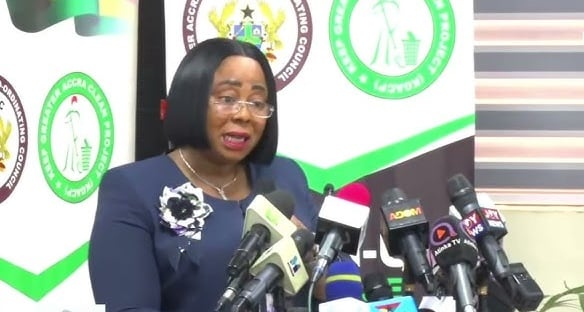Addressing Governance Challenges in Ghana’s Greater Accra Region
The Greater Accra Region of Ghana is facing critical governance challenges, particularly at the local level. Madam Linda Ocloo, the Greater Accra Regional Minister, has issued a stern warning to Metropolitan and District Chief Executives (MDCEs) regarding the conduct of their Personal Assistants (PAs) and their own responsibilities. A key concern is the overstepping of boundaries by PAs, who have reportedly been approving documents on the Ghana Integrated Financial Management Information System (GIFMIS), writing official speeches, and representing MDCEs at official meetings. This practice has been deemed unacceptable and will no longer be tolerated. MDCEs are expected to fulfill their duties personally and ensure that their PAs remain within their designated roles of scheduling, time management, and administrative support. Failure to comply with these directives will result in serious consequences for the individuals involved. The Minister emphasized that Assemblies should be managed by elected and appointed officials, not by unelected and unappointed individuals wielding undue influence.
Another critical issue raised by the Regional Minister is the misuse of official offices. Reports indicate that some MDCEs have transformed their offices into party meeting hubs, prioritizing party officials and visitors over their own staff. This practice hinders access for staff seeking to discuss official matters and is considered an abuse of office. The Minister condemns this behavior and urges MDCEs to prioritize their official responsibilities and ensure open communication with their staff. Proper office usage is essential for effective governance and efficient service delivery.
Environmental concerns also feature prominently in the Minister’s address. She highlighted the alarming encroachment and destruction of environmentally sensitive areas, specifically the Ramsar site and the Laloi Lagoon. Illegal developments at the Ramsar site are contributing to wetland degradation and exacerbating flooding issues. The Regional Coordinating Council (RCC), in collaboration with relevant agencies, will continue demolition exercises to halt these illegal activities and protect the vital ecosystem. Similarly, the filling of materials into the Laloi Lagoon in the Ningo-Prampram District has been identified as a serious environmental threat. The Minister has issued a clear directive for these illegal activities to cease immediately, emphasizing the devastating consequences of such actions, including increased flooding, biodiversity loss, and long-term environmental damage. Those responsible will be held accountable, and strict enforcement measures will be implemented without exception.
The Minister’s pronouncements underline a commitment to accountability and improved governance within the Greater Accra Region. The MDCEs’ performance will be evaluated based on three key areas: sanitation, streetlights, and enforcement of by-laws. Regular reports documenting their progress in these areas will be submitted to the Ministry of Local Government, Chieftaincy and Religious Affairs and forwarded to the Presidency. This performance-based assessment reinforces the importance of these core service delivery aspects and emphasizes the need for tangible results.
Public participation is crucial in addressing these challenges. The Minister urged citizens to report faulty streetlights for prompt action and to take responsibility for maintaining sanitation by avoiding indiscriminate dumping. She also cautioned against the theft of metal gratings and covers, which are often sold to scrap dealers. Such acts are detrimental to public infrastructure and will be met with severe punishment. The Minister’s call for public involvement signifies a collaborative approach to governance, recognizing that citizen participation is vital for achieving sustainable solutions and fostering a sense of collective responsibility.
The Greater Accra Regional Minister’s address serves as a strong call for improved governance, environmental protection, and public accountability. By addressing the issues of PA misconduct, misuse of office, environmental degradation, and essential service delivery, the Minister aims to promote transparency, efficiency, and responsible leadership within the region. The emphasis on performance evaluation, collaboration with relevant agencies, and public participation reflects a comprehensive strategy to tackle these complex challenges and improve the quality of life for citizens in the Greater Accra Region. The Minister’s firm stance on accountability and enforcement sends a clear message that irresponsible actions will not be tolerated and that all stakeholders must contribute to building a more sustainable and well-governed region.


